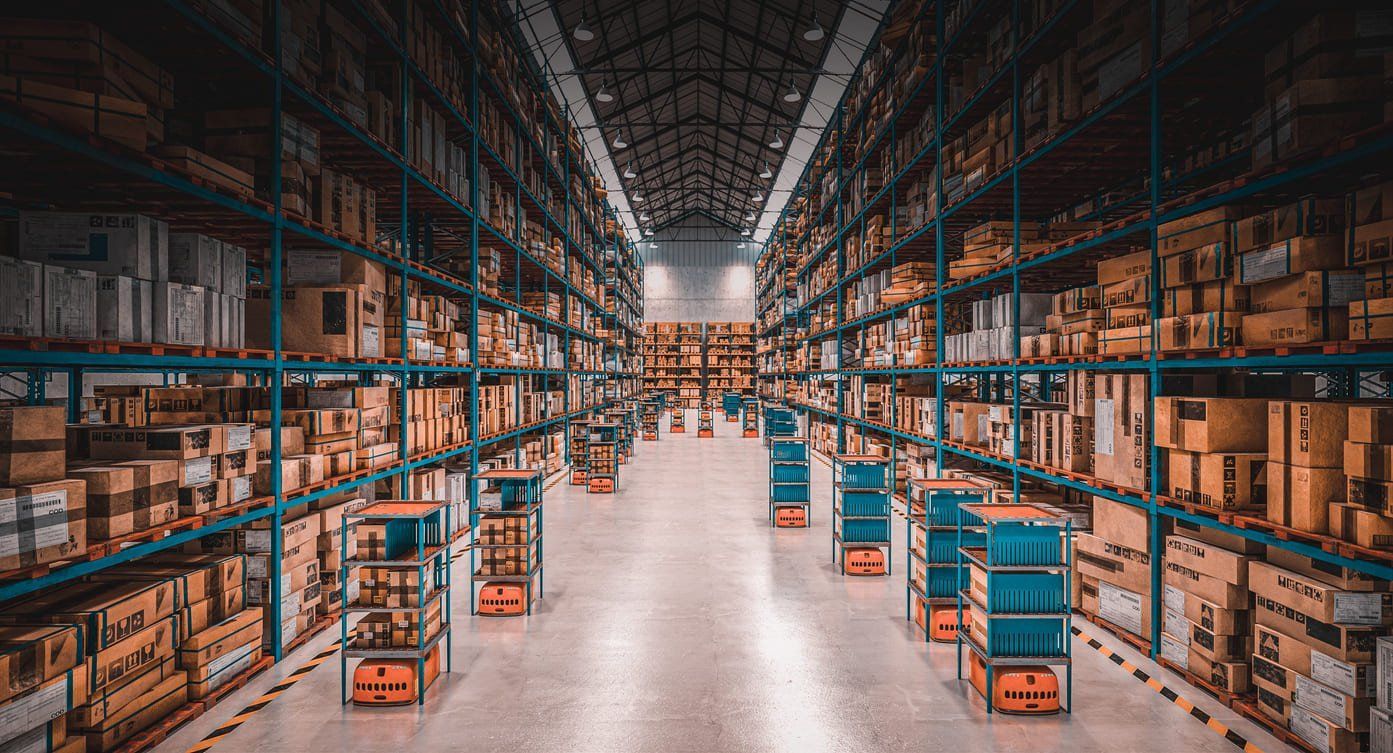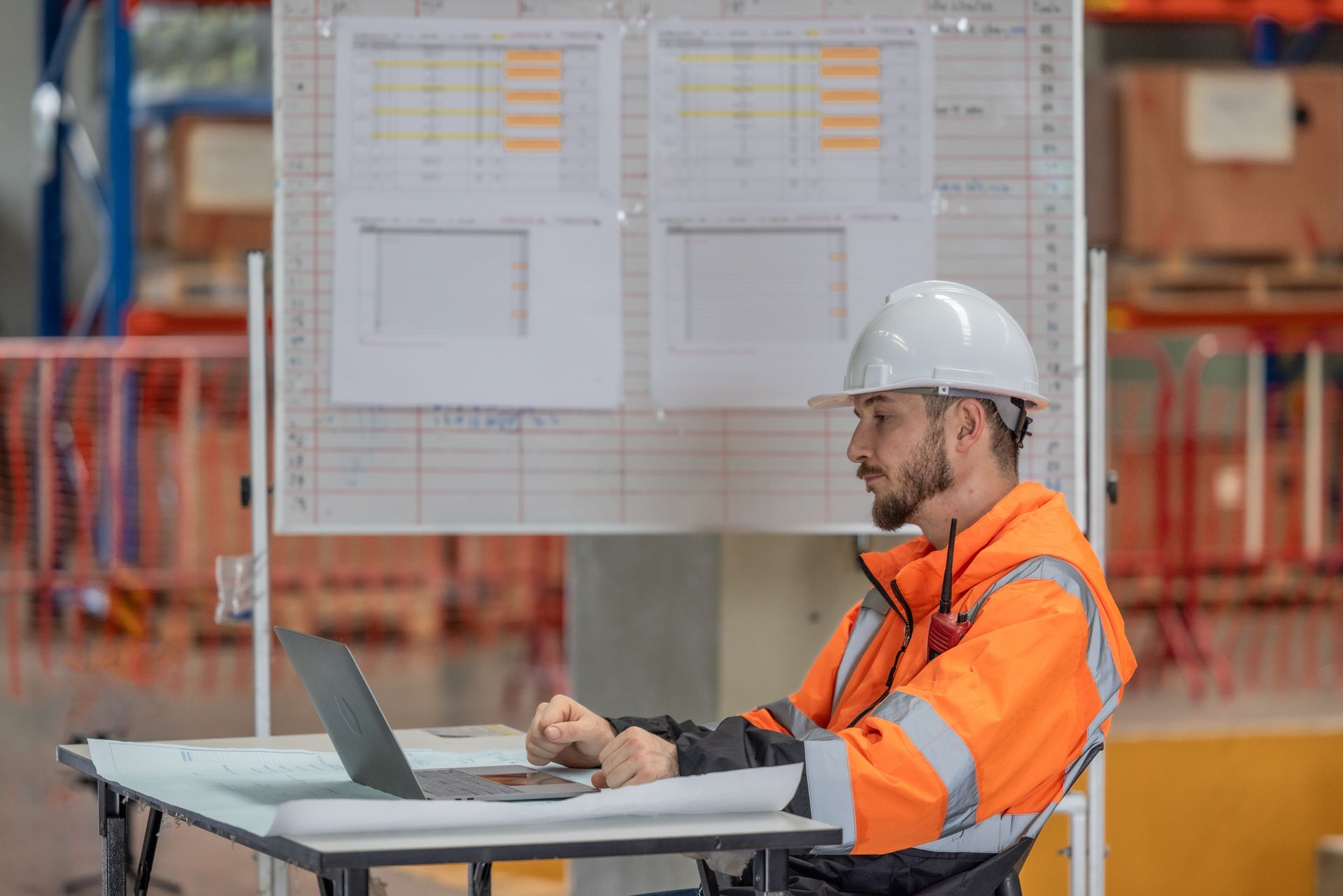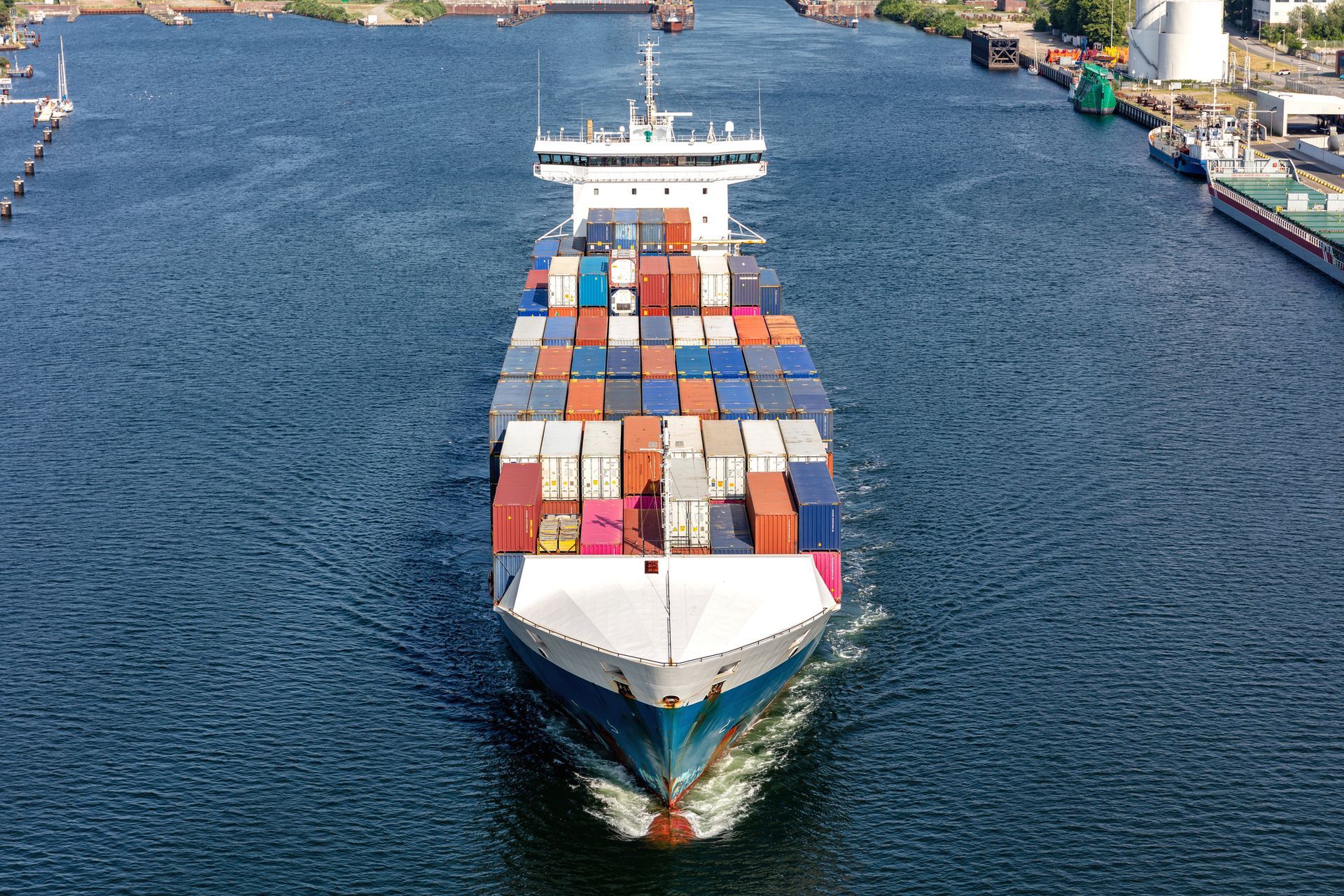
With the advancement of technology, speed and efficiency have become increasingly important, and integrated logistics has emerged as a solution to manage the entire import operation effectively and at a reduced cost.
In this article, we will discuss the four areas of integrated logistics, including material handling and management, distribution and international transportation, and how they work together to create a more efficient and streamlined import process.
Happy reading!
What is integrated logistics?
Integrated logistics is the interconnection of the entire logistics process, from product manufacturing to delivery to the end consumer, through intelligent systems that offer dynamic union and interactivity of actions.
This process also enables information management throughout the supply chain.
Integrated logistics emerged as a response to consumer demands, which are increasingly dynamic and demanding, seeking low prices, quality products and a satisfactory shopping experience.
To remain competitive in the market, companies have looked for ways to reduce costs and make processes more agile and efficient.
Companies are responsible for planning, implementing and controlling all steps of this logistics, in order to prevent failures and increase efficiency. This work is crucial in the current market context and in the ongoing approach to the customer.
Relying on strategic partners, therefore, is essential for integrated logistics to function properly.
Importance of integrated logistics Integrated Logistics offers a series of benefits to companies, including: Control of the flow of products and processes Monitoring the sales flow from the supplier to the end customer.
Process organization
Standardization and optimization of logistics processes.
Increased agility and productivity
More agile and efficient processes, optimizing time and resources.
Cost reduction
Improved resource management and reduced waste.
Reduced errors
Improved inventory management, reducing errors and delays.
Increased profitability
Improvement in logistics processes, generating more profit for the company.
Value creation
Possibility of adding value to products, improving the customer experience.
Competitive advantage
Greater ability to compete in the market, with more efficient processes and greater satisfaction of the customer.
The implementation of Integrated Logistics enables the control and monitoring of each stage of the production process and supply chain, aiming to offer a more efficient purchasing experience to the end customer. The importance of Integrated Logistics can be easily perceived by its positive results for the companies that adopt it.
4 areas of integrated logistics
Integrated logistics is a key factor in the success of an organization. Its four main areas, materials management, materials handling, distribution and international transportation, work together to ensure the efficiency of the supply chain.
Materials management
Materials management manages the purchasing, transportation, storage and inventory control of materials and supplies. To achieve its goals, this sector seeks to reduce costs, maintain the availability of materials, minimize risks and uncertainties, and increase the flexibility of services.
Materials movement
Materials movement, in turn, is responsible for the efficient supply of products and supplies to the production line. This area works with principles such as planning, standardization, optimization and automation, and relies on high-performance technologies.
Distribution
Finally, distribution deals with the route between the company and the end consumer. This area has a great influence on the organization's results, as it deals with customers who may be satisfied or disappointed with the services provided.
To ensure the quality and speed of deliveries, reduce operating costs and delight consumers, distribution relies on technologies that manage all stages of the process, from choosing the carrier to paying invoices.
International transportation
In the context of international transportation, it is essential to give special emphasis to the distribution area. In this case, integrated logistics needs to consider aspects such as the choice of transport mode, the documentation required for export and import, customs management and the specific regulations of each country.
The use of technologies is even more important to ensure the efficiency of this complex process and increase the company's competitiveness in the global market. In addition to technologies, it is extremely important to have efficient strategic partners.
Impacts of integrated logistics on imports
We know that integrated logistics has a major impact on product imports, as it involves the coordination and management of different processes, from the acquisition of materials to the delivery of products.
A well-planned and implemented logistics system can result in a more efficient and profitable import process.
Here are some examples of how integrated logistics can impact product imports
Improved demand forecasting
Ability to more efficiently plan the import of your products. Integrated logistics can help improve demand forecasting by adopting a collaborative and integrated approach between suppliers and customers.
For example, a company can share sales data with its suppliers to help them better forecast demand and prepare for the production and shipment of products.
This way, suppliers can anticipate the company’s needs and ensure that products are delivered on time.
Improved efficiency in transportation management
Logistics integration also contributes to the optimization of transportation management, allowing importers to better coordinate the transportation of their products. This can result in a reduction in transportation costs, as well as faster and more reliable delivery of imported products.
Increased supply chain visibility
An integrated approach can help improve supply chain visibility, allowing importers to track their products in real time. This can help reduce the risk of loss or damage to products, as well as allow for better inventory management and reduced order cycle time.
Improved planning and coordination
With integrated logistics, all stages of the import process are planned and coordinated in an integrated manner, which allows deadlines to be met more efficiently.
Improved quality control
We know that by monitoring the transportation and storage conditions of products, checking the required documents and certifications, and inspecting products before delivery, the quality control of imported products becomes much more efficient. Integrated logistics also helps in this process.
Strengthening the relationship with suppliers
The relationship with suppliers is one of the greatest assets of a company, without a shadow of a doubt. However, it is often overlooked or completely ignored.
Integrated logistics can also improve this relationship, as it allows for greater transparency and communication between the parties. This can help minimize communication problems and delays, as well as allow for better negotiation of prices and deadlines.
In summary, integrated logistics can have a significant impact on product imports, helping companies reduce costs, improve demand forecasting, increase supply chain visibility and increase efficiency in transportation management.
The choice of these partners must be careful and judicious, taking into account the quality of the services provided and the ability to meet the company's needs. In short, integrated logistics plays a fundamental role in the import of goods, allowing for more efficient and precise control of the entire logistics process.
Conclusion
In conclusion, Integrated Logistics is a process that enables the interconnection of the entire logistics chain, from manufacturing to delivery of the product to the end customer.
Implementing Integrated Logistics can bring several benefits, such as controlling the flow of products and processes, organizing logistics processes, increasing agility and productivity, reducing costs, reducing errors, increasing profitability, creating value and gaining a competitive advantage.
Allink is an efficient strategic partner that can help improve the import of LCL and FCL cargo through its expertise in international transportation and logistics solutions.
Contact our experts and find out how Allink can help your company optimize logistics processes and enhance the customer experience.
Continue a navegar no blog da Allink

Mantenha-se informado sobre o comércio exterior
Assine nossa newsletter e receba atualizações semanais de forma gratuita sobre o mundo da logística.




